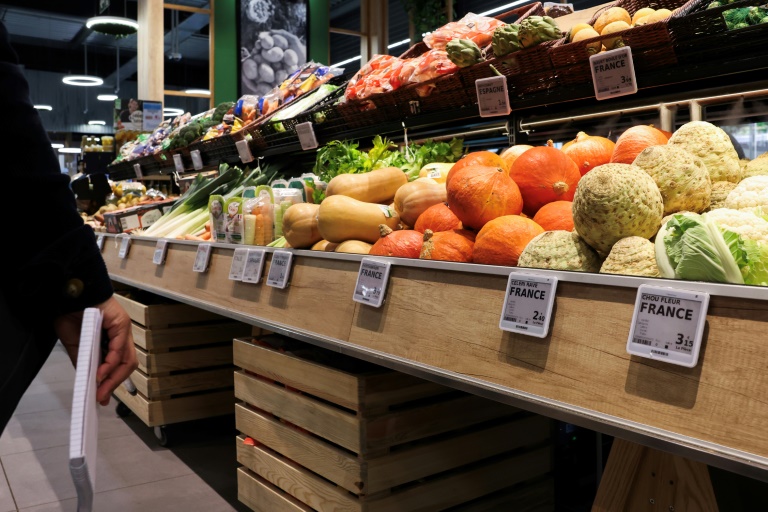Eurozone inflation continued to ease in February, data showed on Friday, but economists warned they were unlikely to prompt the European Central Bank to cut interest rates next month.
Consumer prices in the 20-nation single currency bloc rose 2.6% year-on-year in February, slowing from a 2.8% rise in January, according to the EU's statistics office.
Analysts surveyed by Bloomberg and FactSet had expected inflation to fall to 2.5%.
Eurozone inflation has steadily slowed since its peak in October 2022 and is moving closer to the ECB's 2% target.
Advertisement – SCROLL TO CONTINUE
The ECB has been under pressure to cut interest rates after holding them at 20-year highs since October, but experts have warned against expecting a rate cut in April.
“February's euro zone inflation data looks like the final nail in the coffin for an April interest rate cut,” said Jack Allen Reynolds of economic research firm Capital Economics.
Interest rate hikes by the Frankfurt-based ECB in the wake of Russia's invasion of Ukraine in 2022 will affect the euro zone economy, with growth expected to slow in 2024.
Advertisement – SCROLL TO CONTINUE
The next interest rate setting meeting will be held on March 7th.
ING Bank's Carsten Brzeski said: “As long as the ECB refuses to accept that inflation is almost back on target and aims for the exact 2% target, a rate cut should only be on the agenda at the June Governing Council meeting. ” he said. He said this in a note before the inflation data was released.
Core inflation, which excludes volatile energy, food, alcohol and tobacco prices, as well as key ECB indicators, also slowed to 3.1% in February from 3.3% in January.
Advertisement – SCROLL TO CONTINUE
Core inflation in February was the lowest in two years. However, analysts had expected an even steeper decline in February, to 2.9%.
ECB President Christine Lagarde told the European Parliament this week that she expected “inflation to continue to slow” but wanted to ensure that price increases fell to 2% “sustainably”.
Last month, the EU lowered its 2024 euro zone inflation forecast to 2.7% from 3.2%.
However, Brussels expects the single currency economy to grow by just 0.8% this year, down from its previous forecast of 1.2%.
Advertisement – SCROLL TO CONTINUE
The data showed a welcome slowdown in food and beverage price growth, rising 4.0% in February, well below January's 5.6% rise.
Energy prices in the euro area did fall, but last month's 3.7% decline was much smaller than January's 6.1% decline.
Advertisement – SCROLL TO CONTINUE
Latvia had the lowest inflation rate in the entire European Union at 0.7% in February, according to Eurostat.
Inflation rates have fallen in the EU's two largest economies.
Consumer price inflation in Germany slowed to 2.7% from 3.1% last month.
Inflation in France fell to 3.1% in February from 3.4% in January, data showed.
Other Eurostat data released on Friday showed the euro zone unemployment rate fell to a historic low of 6.4% in January from 6.5% in December.

